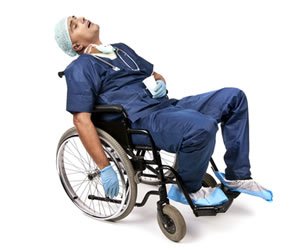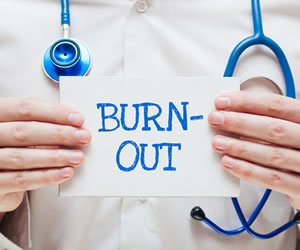
Pre-Medical
The path to becoming a doctor can feel daunting. For those of us that don’t come from a medical family, it can be challenging to navigate what all you need to do to be a ... Read more
Megan Riddle
Updated June 26, 2022 by Megan Riddle

Residency and The Match
1. 2 Days off in a row = Vacation! In high school, I looked forward to winter break, spring break, and summer break. In undergraduate, it was the two weeks off over winter break and ... Read more
Megan Riddle
Updated June 26, 2022 by Megan Riddle

Residency and The Match
I had a certain level of (I thought well-justified) terror anticipating the start of intern year. No longer able to hide behind the protective “I’m just the medical student” blockade, I was worried about not ... Read more
Megan Riddle
Updated June 27, 2022 by Megan Riddle

Medical School
It has been nearly a year now since I walked across the stage at Carnegie Hall to accept my diploma. Now approaching the end of internship – let’s say that again, one more time, with ... Read more
Megan Riddle
Updated June 27, 2022 by Megan Riddle

Healthcare News and Policy
The days are long, the nights short – unless you’re on call or night float, in which case that is reversed. Regardless of where you are in your training, whether in medical school or already ... Read more
Megan Riddle
Updated June 27, 2022 by Megan Riddle

Residency and The Match
Dear Incoming Interns, Congratulations on matching and reaching the end of medical school! I am sure you are very excited to be graduating, and we interns are equally excited for you as it means we ... Read more
Megan Riddle
Updated June 27, 2022 by Megan Riddle

Healthcare News and Policy
My stomach sunk. The results of the biopsy were back and it was not good. I had met Ms. Jones eight days ago when she was admitted for a pneumonia that antibiotics couldn’t seem to ... Read more
Megan Riddle
Updated June 27, 2022 by Megan Riddle

Medical
I am about 45 minutes from the end of my night float shift, that dangerous hour all residents learn to wait through with baited breath, when my pager goes off. Pushing the button to silent ... Read more
Megan Riddle
Updated June 27, 2022 by Megan Riddle

Pre-Medical
When did you know you wanted to be a doctor? the pre-med asked. Maybe it should have been an easy question to answer, but it wasn’t. I have friends who have known as long as they ... Read more
Megan Riddle
Updated June 27, 2022 by Megan Riddle

Medical School
“To sleep, perchance to dream – ay, there’s the rub” ~ Hamlet The irony of being on night float in psychiatry is that I would write orders for a lot of sleep medications while struggling ... Read more
Megan Riddle
Updated June 27, 2022 by Megan Riddle

Medical School
On Thanksgiving, while many my friends and family gather around the table with roasted turkey and a second helping of pumpkin pie, I, along with many of my fellow interns, residents and even a significant ... Read more
Megan Riddle
Updated June 27, 2022 by Megan Riddle

Medical School
“Go forth and do great things.” – Anonymous No one gets into medical school without a considerable dose of ambition. We want to be involved, to make a difference, to save lives. In short, we ... Read more
Megan Riddle
Updated June 27, 2022 by Megan Riddle

Medical School
“Knowing yourself is the beginning of all wisdom.” – Aristotle Even at the time, I realized it was an exquisitely simple task: I had to walk into the exam room, introduce myself as a medical ... Read more
Megan Riddle
Updated June 27, 2022 by Megan Riddle

Residency and The Match
Part apology, part advice and explanation, from a resident to medical students.
Megan Riddle
Updated June 27, 2022 by Megan Riddle

Healthcare News and Policy
There is no simple solution to physician suicide, but it begins with awareness and discussion.
Megan Riddle
Updated June 27, 2022 by Megan Riddle

Medical
Whether your goal is education or entertainment, there is likely a medically oriented podcast out there you will enjoy. I’ve included here a sampling of the ones I found most useful or enjoyable, grouped by ... Read more
Megan Riddle
Updated February 4, 2021 by Megan Riddle

Pre-Medical
Taking steps to prepare for your interviews will reduce stress and strengthen your performance.
Megan Riddle
Updated June 27, 2022 by Megan Riddle

Pre-Health
Writing a personal statement is challenging, but these tips can get you headed in the right direction.
Megan Riddle
Updated June 27, 2022 by Megan Riddle


















